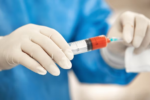How to Become an Emergency Dentist: Mastering the Art of Urgent Dental Care

Becoming an emergency dentist involves much more than just acquiring a dental degree. It requires specialized training, a specific skill set, and the ability to handle high-pressure situations with calm and precision. Emergency dentists play a crucial role in providing immediate care for acute dental problems, ranging from severe toothaches to traumatic injuries. In this article, we’ll explore the essential rules and steps to establish yourself in this challenging yet rewarding field of dentistry.
5 Tips To Become Emergency Dentist
1. Obtain the Necessary Education and Licenses
The first step towards becoming an emergency dentist is to complete a dental program from an accredited institution. After earning your Doctor of Dental Surgery (DDS) or Doctor of Dental Medicine (DMD), you must pass the National Board Dental Examination to obtain your practicing license. Consider further specializing in dental emergency care, which may require additional residencies or certifications, depending on your region’s regulations.
2. Gain Experience in General Dentistry
Before diving into emergency dental care, it’s beneficial to have a solid foundation in general dentistry. Spend a few years practicing in a standard dental setting to hone your skills in various procedures. This experience is invaluable as it prepares you to handle a wide range of situations that you might encounter in an emergency room setting. Mastery of general dentistry provides a broad base from which to specialize effectively.
3. Specialize in Emergency Procedures
Specializing in emergency dental procedures involves additional training focused on conditions requiring urgent care. Enroll in courses and workshops that teach advanced techniques for handling dental emergencies, such as managing oral infections, repairing fractured teeth, or addressing avulsed (knocked-out) teeth. Familiarizing yourself with rapid assessment and treatment techniques will be crucial.
4. Understand and Implement Advanced Technology
Emergency dentistry often relies on the latest technology to provide quick and accurate assessments, which are crucial in urgent care scenarios. Techniques like digital radiography and Invisalign technologies not only expedite the treatment process but also improve the precision and effectiveness of your interventions. Investing time to master these technologies will significantly benefit your practice and improve patient outcomes.
5. Develop Essential Soft Skills
While technical proficiency is critical, the ability to manage patients in distress is equally important for an emergency dentist. Skills in communication, empathy, and decision-making under pressure are paramount. Emergencies can be highly stressful for patients, so having a reassuring presence while providing swift and competent care can set you apart as a top professional in this field.
Conclusion
Becoming an emergency dentist is a journey that goes beyond traditional dental training. It encompasses a deep understanding of urgent dental care, proficiency in advanced dental technologies, and the development of crucial soft skills. By following these steps and continuously seeking to improve, you can excel in this dynamic and impactful specialty within dentistry. Whether it’s a middle-of-the-night toothache or a critical dental injury, your skills will make a significant difference in the lives of those in urgent need.






